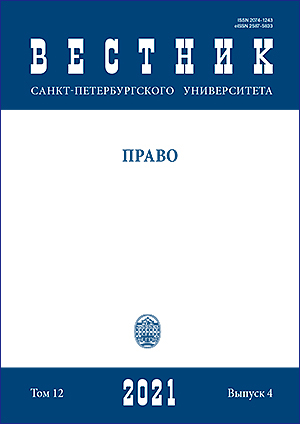Expert examination of electoral legislation in the conclusions of the Venice Commission
DOI:
https://doi.org/10.21638/spbu14.2021.419Abstract
The article is devoted to the theoretical and practical approaches of the European Commission for Democracy through Law (the Venice Commission) to the assessment of electoral processes and elections in states. Since the Venice Commission is a subsidiary body of the Council of Europe, special attention is paid to the observance of Council of Europe standards in the field of human and civil rights in regard to elections. Through an empirical analysis of various documents of the Venice Commission (conclusions, recommendations, codes of practice, etc.), a conclusion is drawn about the existential approach of this body to assessing the electoral legislation of states. This approach is based on a wide array of sources perceived by experts of the Venice Commission, which, in addition to state legislation and official comments, may also include reports from the media, the Internet, the personal worldview of the expert and comments from other persons familiar with the situation. Based on this broad range of sources, the Venice Commission also objectifies its assessments into different acts, which may have a variety of names, but have the force of recommendations for states. Thus, the conclusions of the Venice Commission are acts of soft law and can be perceived by national legal systems using various channels of implementation. The analysis of the documents of the Venice Commission on elections and electoral processes shows that in the orbit of expertise of this body are such issues as: prevention of abuse of power and administrative resources of power in the organization and holding of elections; prevention of discrimination against opposition and various minorities, etc. The issues of gender equality in state authorities, protection of the rights of stateless persons, and voting using digital technologies are also considered.
Keywords:
Venice Commission, elections, electoral processes, international standards, human rights, legislation, democracy, legal system
Downloads
References
Downloads
Published
How to Cite
Issue
Section
License
Articles of "Vestnik of Saint Petersburg University. Law" are open access distributed under the terms of the License Agreement with Saint Petersburg State University, which permits to the authors unrestricted distribution and self-archiving free of charge.






